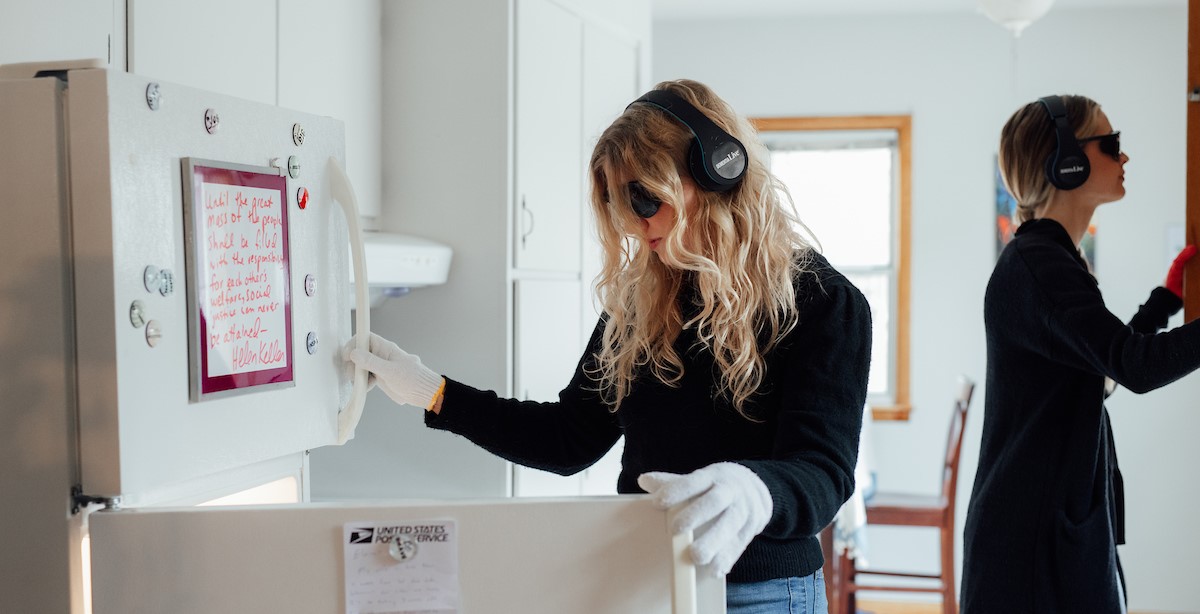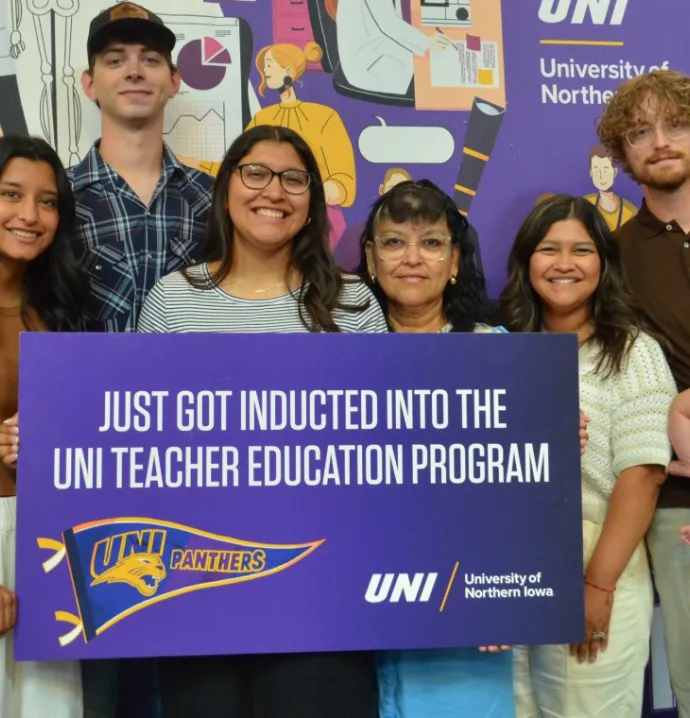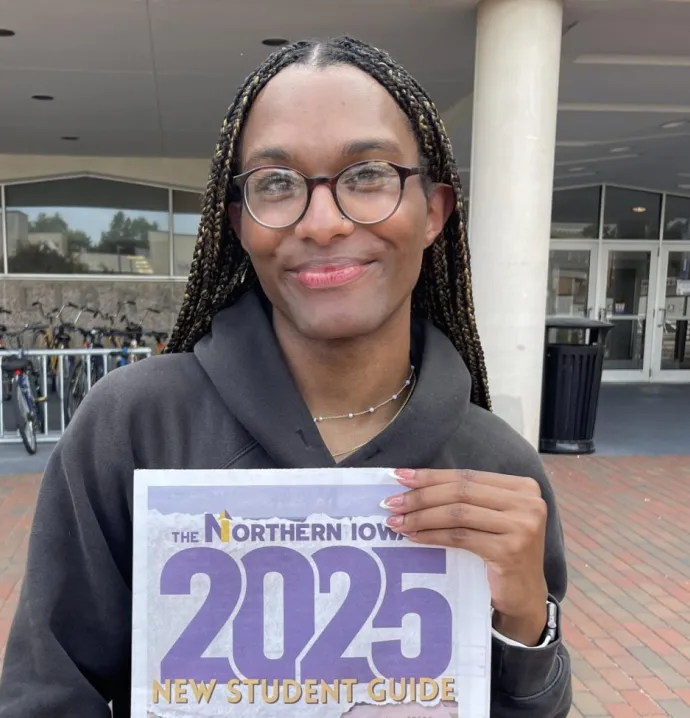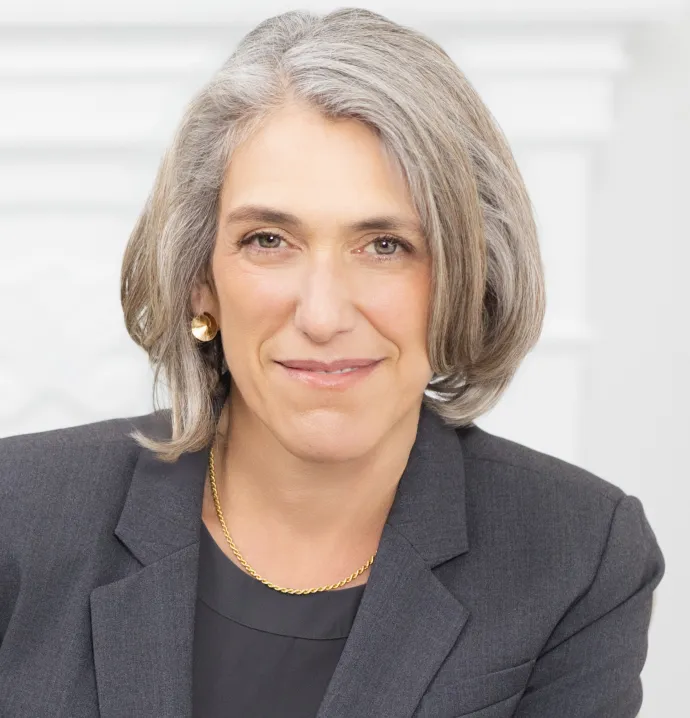UNI Dementia Simulation House marks two-year anniversary
UNI Dementia Simulation House marks two-year anniversary

The following entry was originally published on the blog of Dr. Elaine Eshbaugh:
Hi friends,
[Feb. 8] is the two year anniversary of our Dementia Simulation House!
I have something different for you today. I’ve been reflecting recently on how incredibly lucky I have been in finding the right students to work with us at the Dementia Simulation House.
Our success is built on our students. They are the heart and soul of what we do, and I don’t know where we’d be without their contributions. I asked one of the graduate students on our team to write about her experience. Please read about Elsie’s experience below.
–Elaine
My journey at UNI’s Dementia Simulation House started November 2022 when I was searching for graduate programs in mental health counseling to apply to. I knew I wanted to work with older adults, so my number one priority was to find a school that would help me start a career in geriatric counseling.
I did some research. (The Dem Sim team knows that I love to research.) I came across the University of Northern Iowa. As a South Dakota native, I really didn’t know much about this school. However, I saw that they had a superb gerontology program, and I specifically remember bragging to my mom about how cool it was that they had this Dementia Simulation House on campus. I was amazed and thought maybe I’d have to go check it out sometime without even imagining that I’d be working there less than a year later.
The first time I ever met our team was at Dr. Elaine Eshbaugh’s house for a little kick-off party before the semester started this fall. Right away, everyone was so welcoming.
The people on our team really know how to make each other feel special and valuable. Most incredibly, my all-time favorite thing about the house is that there hasn’t been any drama. It blows my mind.
As a former athlete, I’ve been on a lot of teams, and I honestly thought that fighting was just a part of the deal. However, I’ve learned that there’s not much to fight about when all members of the team are so passionate about the same purpose, to make the world a better place for those living with dementia.
It hasn’t all been roses. As anyone on our team will tell you, Elaine has a wonderful way of pushing you far beyond your comfort zone. I have a phobia of public speaking. This is a problem because, obviously, if you want to educate the community about dementia, you have to talk to them. Slowly, I’ve become more and more comfortable with this part of the job and was even able to present with Elaine at a conference this fall.
I’ve learned so much working at the Dementia Simulation House that I can apply to my future work as a counselor. Counseling is about empathy, encouragement, and being able to walk alongside those who need a helping hand. You can’t truly acknowledge the experience of someone living with dementia if you don’t have a deep understanding of what dementia is.
It’s impossible to uncover everything about dementia because quite honestly, not much is set in stone. Everyone experiences dementia differently. There’s no step-by-step guide on how dementia progresses or one-size-fits-all solution, and that’s why dementia is so hard.
This variability serves as a reminder to me that to help someone living with dementia, I need to take an individualistic approach. I need to recognize that this person is still the same person they’ve always been and respect their experiences even if they look different than my own.
This is just one of the many lessons I’ve learned from our team at the Dementia Simulation House. If you’ve never been through our simulation or have been through before but want to experience it again, please come visit us! I promise that you will walk away with more knowledge and tools that you can utilize to be a friend to those living with dementia.




